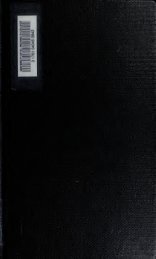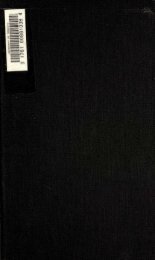Texts from the Buddhist canon : commonly known as Dhammapada
Texts from the Buddhist canon : commonly known as Dhammapada
Texts from the Buddhist canon : commonly known as Dhammapada
You also want an ePaper? Increase the reach of your titles
YUMPU automatically turns print PDFs into web optimized ePapers that Google loves.
,<br />
BUDDHA. 113<br />
world ; happy he who always observes <strong>the</strong> precepts ;<br />
happy he who consorts with <strong>the</strong> good, and treats<br />
<strong>the</strong>m <strong>as</strong> his own kith ; he who frequents <strong>the</strong> company<br />
of <strong>the</strong> virtuous is a wise man, and of high<br />
renown." ^<br />
Having said <strong>the</strong>se words, <strong>the</strong> seven men became Eahats,<br />
and <strong>the</strong> King and his ministers, with countless Dev<strong>as</strong>, after<br />
entering <strong>the</strong> Paths, were privileged to see much rain<br />
descending on <strong>the</strong> land.2<br />
1 This l<strong>as</strong>t verse is difBcnlt to tran- ° The preceding verses correspond<br />
slate. The phr<strong>as</strong>e "to-Mia»" means generally with 194 and 195 of <strong>the</strong><br />
ei<strong>the</strong>r "celebrated" or " a disciple<br />
(one who hears much).<br />
"<br />
Pftli.





